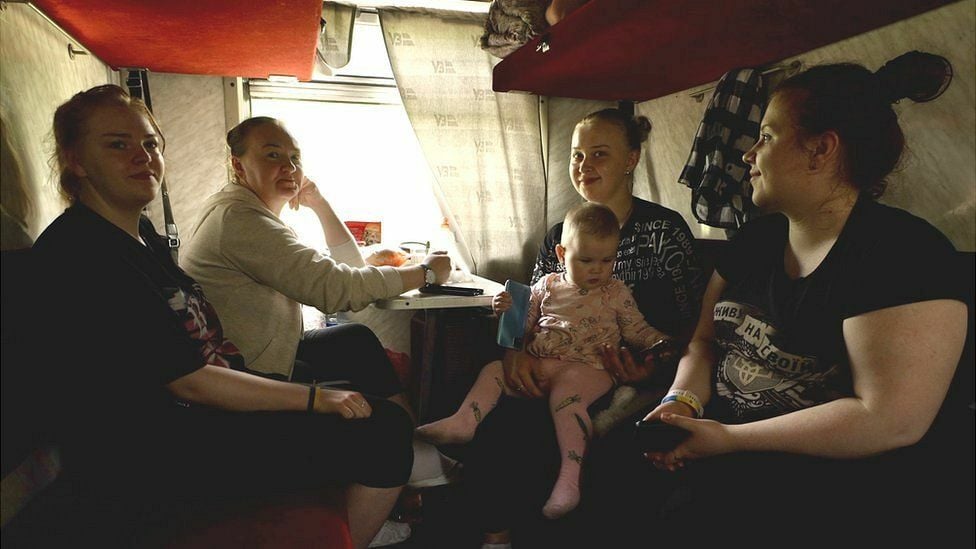Ukrainian families return to frontline towns despite Russian threat

In the eastern Ukrainian city of Dnipro, the train station continues to operate despite Russia’s ongoing invasion. Millions of people depend on these trains, with many passengers travelling to the last stop before the eastern front line. Among them are soldiers and young families returning to their homes.
One such passenger is 20-year-old Viktoria, who is heading back to Pokrovsk with her baby Eva. After spending a year travelling across Ukraine and Slovakia to keep her daughter safe, Viktoria has decided to return home. “It’s impossible to live like this, wandering everywhere. We have to make it work at home,” she says.
Since last year, six million Ukrainians have returned to their country, with thousands moving back to their homes along the 965km front line where the threat of a Russian attack persists. Many, like Viktoria’s husband Serhiy, have remained in towns like Pokrovsk due to their jobs in the local coal mines, a major employer in the Donetsk region.
The coal mining industry has not only retained workers but also attracted new ones with job offers. Despite the dangers of working in the mines and the ongoing conflict above ground, miners like Volodymyr continue to work to support their families. “When you go underground, you don’t know what’s happening above with the family. I’m often very worried,” he says.
The population of Pokrovsk is gradually increasing after a significant drop last year. The town has become a destination for those fleeing Russian occupation and fighting. Local officials have restored power and water supplies, even though they warn people to stay away due to the threat of Russian multiple-rocket launcher systems.
Soldiers from the territorial defence watch over the town’s outskirts, allowing people to move back into harm’s way. Their efforts are met with understanding from those in the trenches. “Some are saving their children, some stay because it’s their homeland,” says Vyacheslav. “If you have to die, it’s better to die in your motherland than somewhere abroad.”
Families like Serhiy, Viktoria, and Eva have chosen to stay together in their hometown, accepting the risks and the reality that the conflict may not end soon. “Who knows when it will become safe here?” Serhiy wonders. “Maybe a year? Two? Or five? We don’t want to wait five years, or even one year.”
Latest Thailand News
Follow The Thaiger on Google News:


























